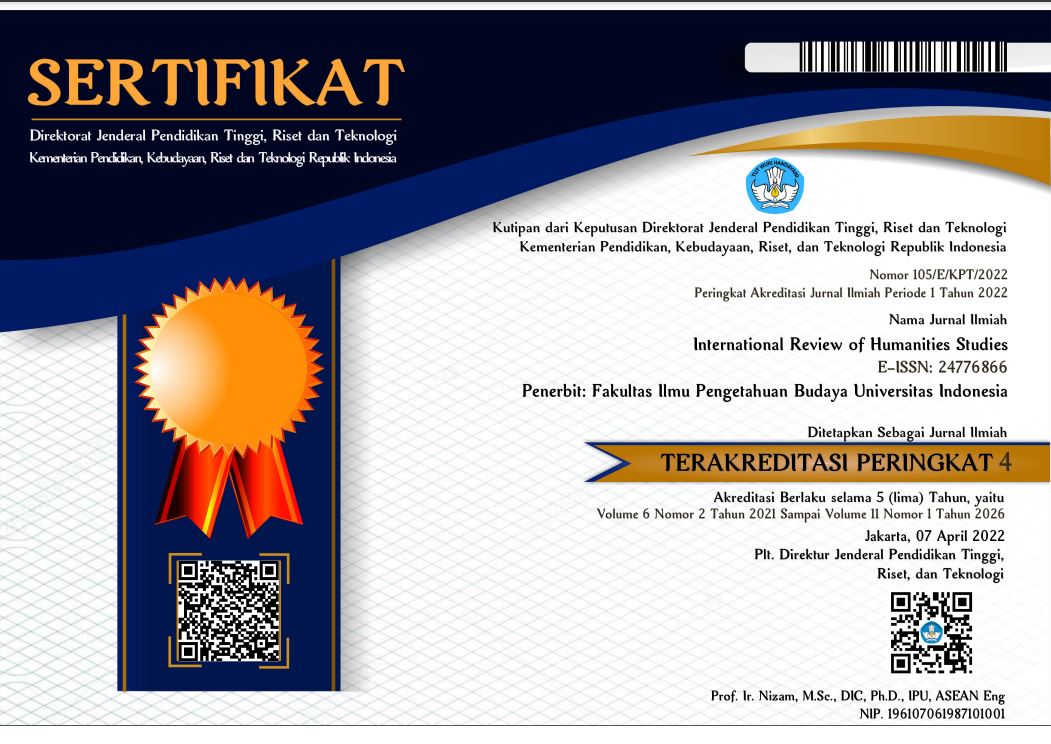International Review of Humanities Studies

Abstract
Gugon Tuhon (GT) is a Javanese proposition found in the community as a learning tool. This study explains baby care GT in the village of Bulurejo, Kediri, East Java. Currently, GT is poorly understood and obsolete. Therefore, the research problem of this paper is how can the meaning of GT be understood by mothers in the village of Bulurejo and what does the effect of understanding GT? This study used 8 GT from www.sastra.org, and an interview was conducted with a dhukun (traditional healer) to get in-depth data. This study uses qualitative method and Speech Act theory by Austin (1984) on locutionary act, illocutionary act, and perlocutionary act to identify the meanings of GT understood by mothers, and the theory of language attitudes by Triandis (1971) and Knops (1987) to explain the effects. The hypothesis of this paper is that the understanding of baby care GT as an illocutionary act is less understood, compared to the meaning of locution and perlocution. GT is understood and done by mothers as means of self-defense of fear and gaining knowledge of parents who convey GT. This research is expected to provide knowledge about GT baby care for mothers and support GT preservation.
Recommended Citation
Kurniawati, Devi and Widhyasmaramurti, Widhyasmaramurti
(2019)
"PRAGMATIC MEANING OF BABY CARE GUGON TUHON IN JAVANESE,"
International Review of Humanities Studies: Vol. 4:
No.
3, Article 13.
Available at:
https://scholarhub.ui.ac.id/irhs/vol4/iss3/13
Included in
Arts and Humanities Commons, Education Commons, Life Sciences Commons, Social and Behavioral Sciences Commons


